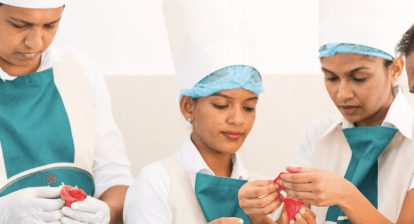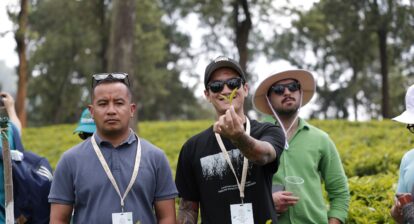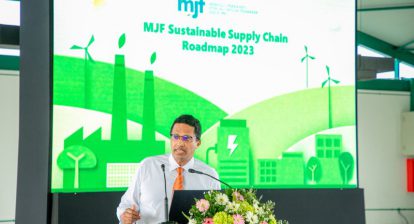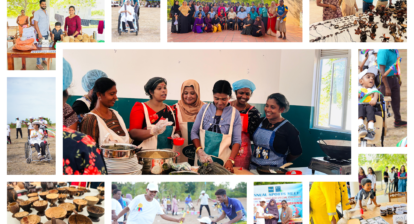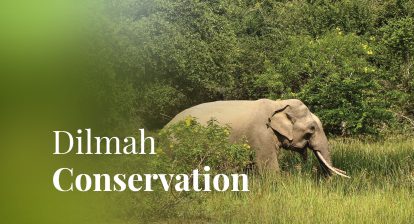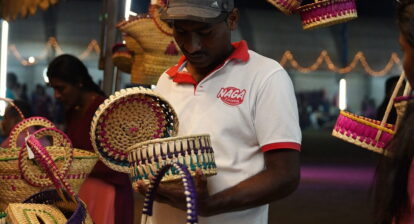RENOWNED SOUTH AFRICAN CONSERVATIONIST CHATS WITH DILMAH GEN 3S AMRIT ABOUT OVER A CUPPA
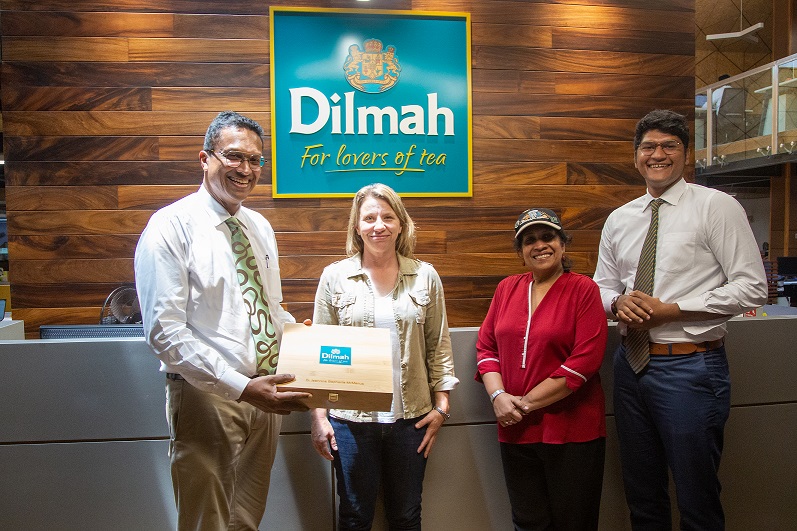
If you have noticed the decrease in the population of species that you encounter day-in day-out or pass by your windshield, you are the kind of person the world needs now. – Yet have you made an effort to understand why?
“What we observe is not nature itself, but nature exposed to our method of questioning” – Werner Heisenberg
Dr. Jeanine; Ecologist, Researcher and Conservationist from South Africa, in her recent interview on Leopard Conservation, with Amrit Fernando of Dilmah Ceylon Tea states; the dream of living in co-existence should be to connect habitat patches around the country forming a network, where animals do their own thing and we as humans work in and around it.
Why is that important?
Habitat fragmentation is a major reason for the decline in species population. Habitat fragmentation, caused by human activities like urban development and agriculture, breaks large habitats into smaller, isolated patches, leading to biodiversity loss and disrupted ecosystem services.
Land corridors, or wildlife corridors, are essential as they connect these patches, allowing for species movement and gene flow, thus enhancing genetic diversity and species survival.
Metapopulations, consisting of separated populations that interact through migration, rely on these corridors for recolonization and maintaining dynamic stability.
Effective conservation strategies prioritize creating and maintaining these corridors to counteract the negative impacts of fragmentation and support ecosystem health.
How does habitat fragmentation effect leopards?
Leopards, known for their solitary lifestyle, are significantly impacted by habitat fragmentation, leading to increased human-wildlife conflicts and decreased genetic diversity. Female leopards play a crucial role in maintaining population stability, as they establish and defend territories that overlap with their offspring’s ranges, ensuring access to resources and mating opportunities.
Why leopards in particular?
If you are wandering why concerns are mainly raised around elephants and leopards, Leopard and elephant conservation are priorities because they play crucial roles in ecosystem health. Leopards, as apex predators, control prey populations and maintain balance in their habitat. Elephants, as keystone species, shape their environments through tree felling and seed dispersal, supporting diverse plant and animal life. Protecting these species is vital for preserving biodiversity and ecological stability, as they face significant threats from habitat loss and poaching.
What’s a cuppa tea got to do with leopards?
Within the fragmented landscape, the leopards find refuge in our tea estates that act as passageways aiding their movement. However, conflicts arise between these animals and the estate community due to lack of awareness. Hence raising awareness is key to minimise these conflicts.
Dr Jeanine’s visit took her to do some awareness sessions in some schools in estate areas – Kingsbury Tamil School in Kataboola Estate, and an awareness session for Planters in Nawalapitiya in collaboration with the Wildlife and nature Protection Society and the Department of Wildlife Conservation.
How can I contribute?
As a corporate, if you are worrying over the cost involved in adhering with sustainability guidelines or environmental regulations, take Dr. Jeanine’s words; It can be expensive to work with nature, but expensive to work against it as well.
For example, in agriculture, sustainable practices like crop rotation and organic farming are expensive initially due to specialized equipment and training. Conversely, relying on chemical fertilizers and pesticides may have lower upfront costs but can lead to soil degradation, loss of biodiversity, and contamination, resulting in high future expenses for soil restoration, healthcare, and environmental clean-up. Both approaches involve significant financial investments, emphasizing the trade-offs between immediate and long-term costs.
As an urban dweller, if you are thinking you cannot make much of an impact, know that the effort made in finding out how a product is being produced, and underlying sustainability approaches also account. Next time you go shopping, aim to purchase sustainable products over conventional.
As a village dweller in close contact with nature, aim to heighten your awareness, tolerate and contribute to the measures undertaken by various authorities in conserving local populations of leopards and other concerned animals in the context.
In the current context and stage, being observant is essential, being aware and understanding is crucial, but the willingness to tolerate and make an impact is of utmost importance.
For more insights on leopard conservation. Watch the full podcast with Dr. Jeanine here

